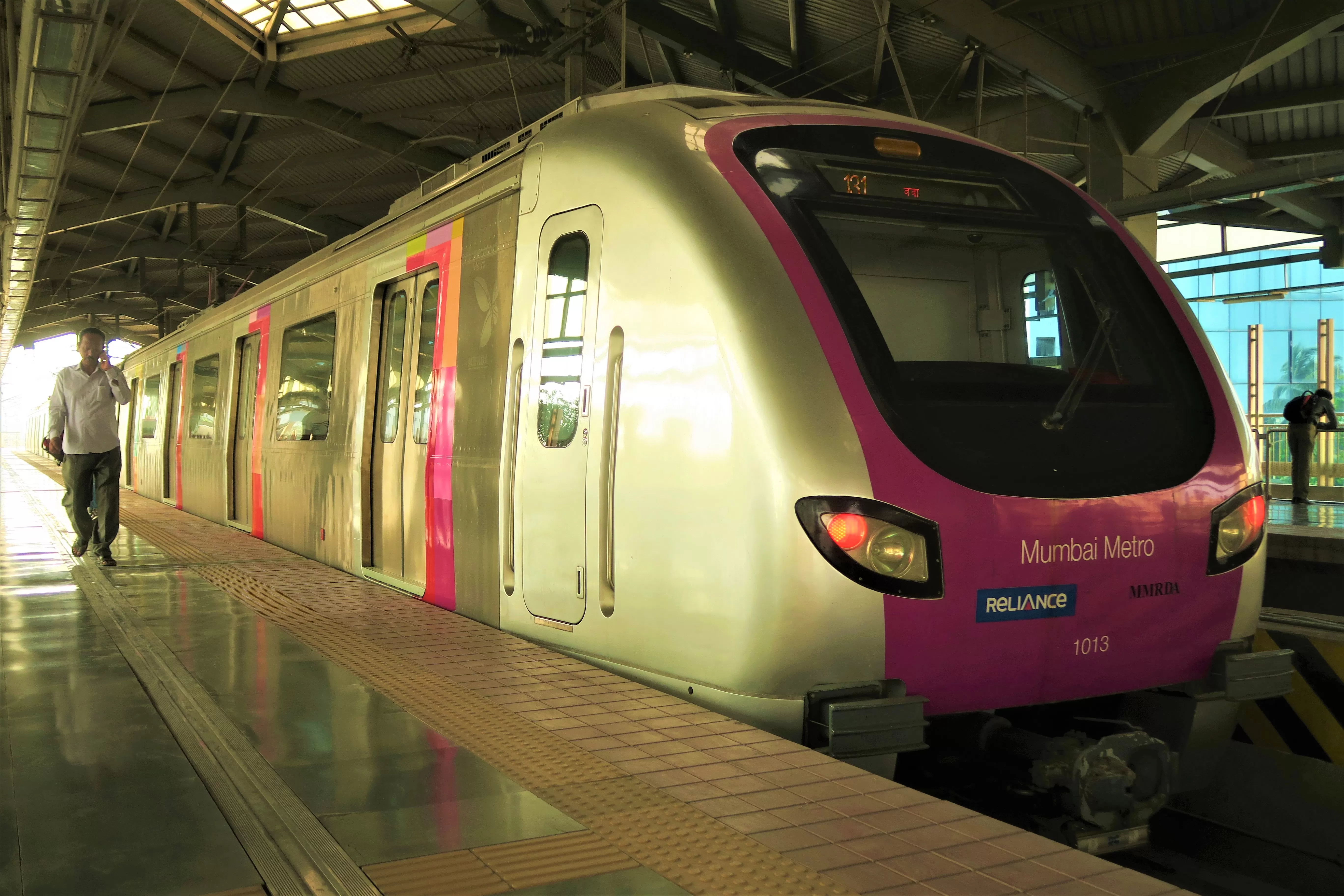The eagerly awaited Metro Line 8, a Rs 200 billion urban transit initiative, is moving steadily toward a major milestone as the City and Industrial Development Corporation (CIDCO) readies to issue tenders once the Detailed Project Report (DPR) is finalised.
Stretching over 34.9 km, the corridor—also known as the Gold Line—will establish a seamless link between Mumbai’s two major airports: Chhatrapati Shivaji Maharaj International Airport (CSMIA) and the upcoming Navi Mumbai International Airport (NMIA). Developed under the Public-Private Partnership (PPP) model, this project is set to be a significant leap in urban transportation for the Mumbai Metropolitan Region (MMR). It will become the second metro corridor in Mumbai to adopt the PPP framework after Metro Line 1. Authorities involved in infrastructure planning have indicated that the project is slated for commissioning by 2029, with the tendering process expected to be completed within the current year.
According to the latest alignment plan, the metro line will begin underground at Terminal 2 of CSMIA, continuing beneath the city until Chheda Nagar, after which it will emerge onto an elevated viaduct along the Sion-Panvel Highway. This realignment replaces the earlier proposed route via Palm Beach Road, as planners deemed the new path a more practical and efficient engineering solution for navigating the dense urban landscape. The line has been carefully designed to connect multiple transit hubs, including Kurla, Lokmanya Tilak Terminus (LTT), Mankhurd, Vashi, Nerul, and Belapur, thus enhancing multimodal connectivity by linking metro lines, suburban trains, and long-distance rail services.
Officials involved in the planning process have emphasised that the Gold Line will do more than just connect two airports—it will serve key residential and commercial areas, improving access and reducing travel times across the region. Experts believe Metro Line 8 will play a pivotal role in reducing dependency on private vehicles and road-based travel, which currently contribute heavily to traffic congestion and vehicular pollution in Mumbai. With an anticipated daily ridership of 9 lakh passengers, the corridor is expected to significantly ease pressure on major arterial roads like the Eastern Expressway and Sion-Panvel Highway.
Urban planners have incorporated principles of sustainable development into the metro’s blueprint. By offering fast, reliable, and electric public transport between the eastern and western corridors of the city, Metro Line 8 is aligned with broader climate and decarbonisation targets outlined in national and regional strategies. Moreover, the project aims to foster more equitable urban growth by providing affordable mobility options to employment hubs, transit nodes, and public services.
The Gold Line will also feature interchanges with seven existing and planned metro corridors within the MMR. These strategic connections are expected to transform commuter experiences by enabling smooth transfers and significantly cutting down travel durations. Once operational, Metro Line 8 will offer a quicker alternative for airport transfers compared to current road-based options, positioning it as a vital asset for a region grappling with increasing air traffic. The integrated metro access to both international airports is anticipated to enhance Mumbai’s competitiveness on the global stage, encouraging greater investment in sectors such as logistics, aviation, and tourism.
Infrastructure experts have noted that metro connectivity between two major airports is rare even among the world’s largest cities. With the launch of Metro Line 8, Mumbai will join an elite group of global metropolitan areas offering rapid rail-based airport transfers. The project is seen as a cornerstone in the region’s broader urban development strategy and is closely aligned with India’s ambition to become a $5 trillion economy. The emphasis on green mobility further underscores the nation’s commitment to reducing its urban carbon footprint and promoting environmentally friendly infrastructure.
By anchoring critical economic clusters across Thane, Mumbai, and Navi Mumbai, Metro Line 8 is expected to stimulate growth along its route, boost real estate activity, and promote balanced regional development. Officials are optimistic that, with effective implementation and robust public-private cooperation, the project will set new standards for urban mobility in India. As the final DPR approaches completion and the tendering phase begins, Metro Line 8 continues to generate excitement for its bold vision, scale, and transformative potential—promising not just a new transport link, but a more sustainable and connected future for the Mumbai Metropolitan Region.
News source: Urban Acres




















